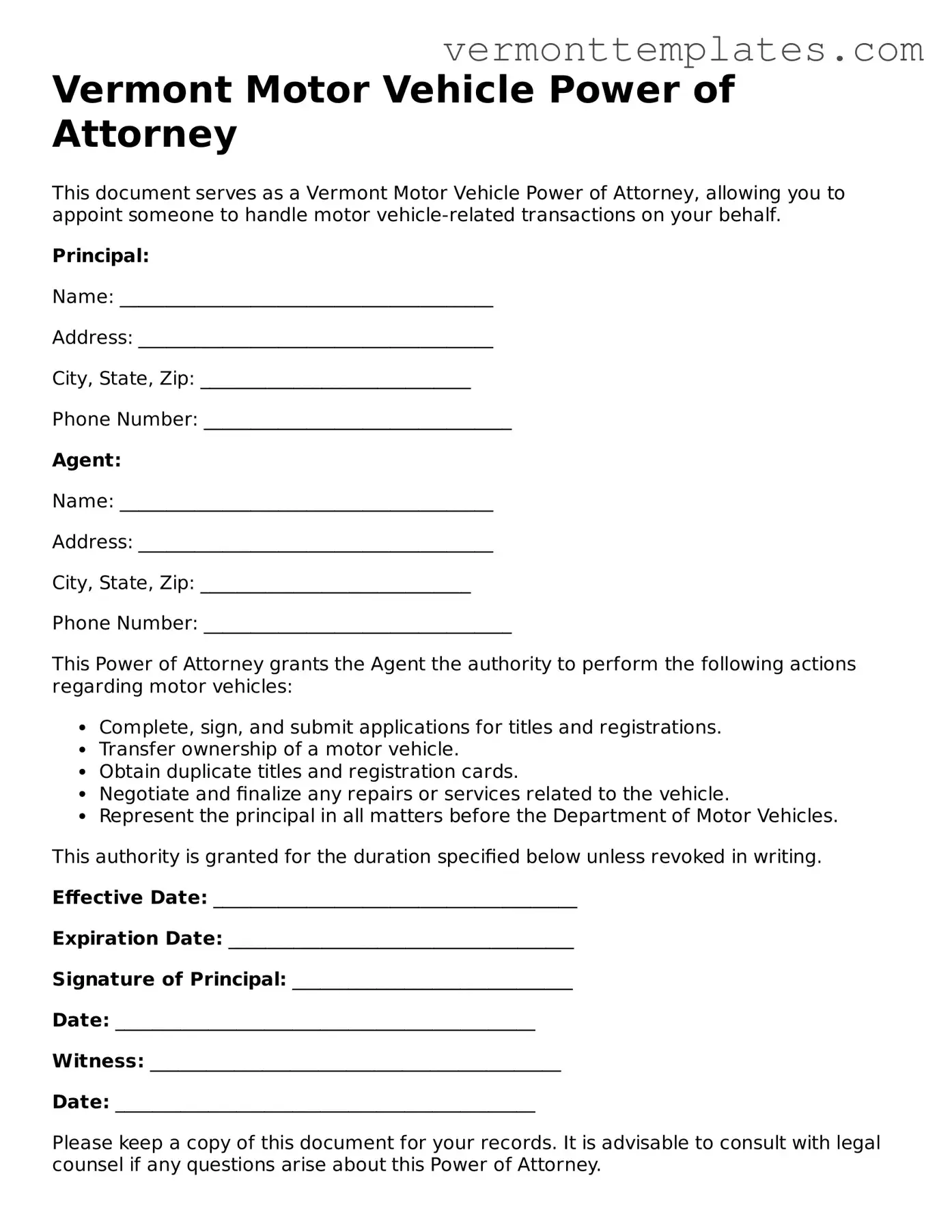Legal Motor Vehicle Power of Attorney Template for Vermont
The Vermont Motor Vehicle Power of Attorney form allows an individual to appoint someone else to handle specific motor vehicle-related tasks on their behalf. This legal document grants authority for actions such as transferring ownership, registering vehicles, or obtaining titles. Understanding this form is essential for anyone needing assistance with motor vehicle transactions in Vermont.
Open Motor Vehicle Power of Attorney Editor

Legal Motor Vehicle Power of Attorney Template for Vermont
Open Motor Vehicle Power of Attorney Editor
Complete the form at top speed
Edit, save, and download Motor Vehicle Power of Attorney online with ease.
Open Motor Vehicle Power of Attorney Editor
or
⇩ Motor Vehicle Power of Attorney PDF Form
